
Bless You Mr. Hofman
Yin and Yang.
Light and Dark.
Good Trip, Bad Trip.
Mostly Good...
I have to say, back in my mis-spent youth, I experimented with mushrooms more than LSD. I always felt that the mushrooms were more natural and had a sharp bell-curve as far as when you peak and when you slide back down.
There is something very, very revelatory about letting go and loosing your sense of self (ego) and becoming A PART OF EVERYTHING. A part of the tree, the cloud, the animal.
Sure, this experiment should not be taken lightheartedly, though it often is. There is also substantial evidence that LSD (as well as Heroin) was introduced into college-educated activist circles to destabilize the revolutionary movement of the 1960's.
But let's take a moment to simply reflect on the man that discoverd LSD, and some of the positive aspects this powerful chemical can unleash in the Human mind:
Albert Hofmann, father of the mind-altering drug LSD, dies in Switzerland at 102
FRANK JORDANS
AP News
Apr 30, 2008 06:52 EST
Albert Hofmann, the father of the mind-altering drug LSD whose medical discovery inspired — and arguably corrupted — millions in the 1960s hippie generation, has died. He was 102.
Hofmann died Tuesday at his home in Burg im Leimental, said Doris Stuker, a municipal clerk in the village near Basel where Hofmann moved following his retirement in 1971.
For decades after LSD was banned in the late 1960s, Hofmann defended his invention.
"I produced the substance as a medicine. ... It's not my fault if people abused it," he once said.
The Swiss chemist discovered lysergic acid diethylamide-25 in 1938 while studying the medicinal uses of a fungus found on wheat and other grains at the Sandoz pharmaceuticals firm in Basel.
He became the first human guinea pig of the drug when a tiny amount of the substance seeped onto his finger during a laboratory experiment on April 16, 1943.
"I had to leave work for home because I was suddenly hit by a sudden feeling of unease and mild dizziness," he subsequently wrote in a memo to company bosses.
"Everything I saw was distorted as in a warped mirror," he said, describing his bicycle ride home. "I had the impression I was rooted to the spot. But my assistant told me we were actually going very fast."
Upon reaching home, Hofmann began experiencing what he called "wonderful visions."
Three days later, Hofmann experimented with a larger dose. The result was the world's first scientifically documented bad trip.
"The substance which I wanted to experiment with took over me. I was filled with an overwhelming fear that I would go crazy. I was transported to a different world, a different time," Hofmann wrote.
Hofmann and his scientific colleagues hoped that LSD would make an important contribution to psychiatric research. The drug exaggerated inner problems and conflicts and thus it was hoped that it might be used to recognize and treat mental illnesses like schizophrenia.
For a time, Sandoz sold LSD 25 under the name Delysid, encouraging doctors to try it themselves. It was one of the strongest drugs in medicine — with just one gram enough to drug an estimated 10,000 to 20,000 people for 12 hours.
LSD was elevated to international fame in the late 1950s and 1960s thanks to Harvard professor Timothy Leary who embraced the drug under the slogan "turn on, tune in, drop out."
But away from the psychedelic trips, horror stories emerged about people going on murder sprees or jumping out of windows while hallucinating. Heavy users suffered permanent psychological damage.
The U.S. government banned LSD in 1966 and other countries followed suit.
Hofmann maintained this was unfair, arguing that the drug was not addictive. He repeatedly argued for the ban to be lifted to allow LSD to be used in medical research.
Last December, Swiss authorities decided to allow LSD for psychotherapy in exceptional cases.
"For me, this is a very big wish come true. I always wanted to see LSD get its proper place in medicine," he told Swiss TV at the time.
Hofmann himself took the drug — purportedly on an occasional basis and out of scientific interest — for several decades.
"LSD can help open your eyes," he once said. "But there are other ways — meditation, dance, music, fasting."
Even so, the self described "father" of LSD readily agreed that the drug was dangerous if in the wrong hands. This was reflected by the title of his 1979 book: "LSD - my problem child."
In it he wrote that, "The history of LSD to date amply demonstrates the catastrophic consequences that can ensue when its profound effect is misjudged and the substance is mistaken for a pleasure drug."
Hofmann retired from Sandoz in 1971 and devoted his time to travel, writing and lectures.
"This is really a high point in my advanced age," Hofmann said at a ceremony in Basel honoring him on his 100th birthday. "You could say it is a consciousness-raising experience without LSD."
Funeral arrangements were not immediately available.___
Associated Press writers Balz Bruppacher in Bern, Eliane Engeler in Geneva and Clare Nullis contributed to this report.
Source: AP News
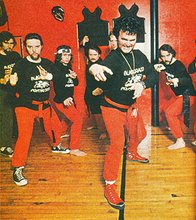




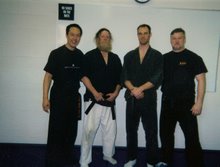
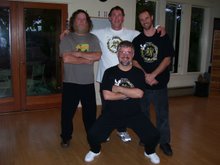

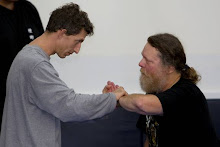
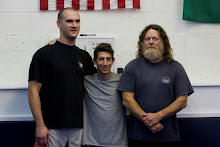



No comments:
Post a Comment